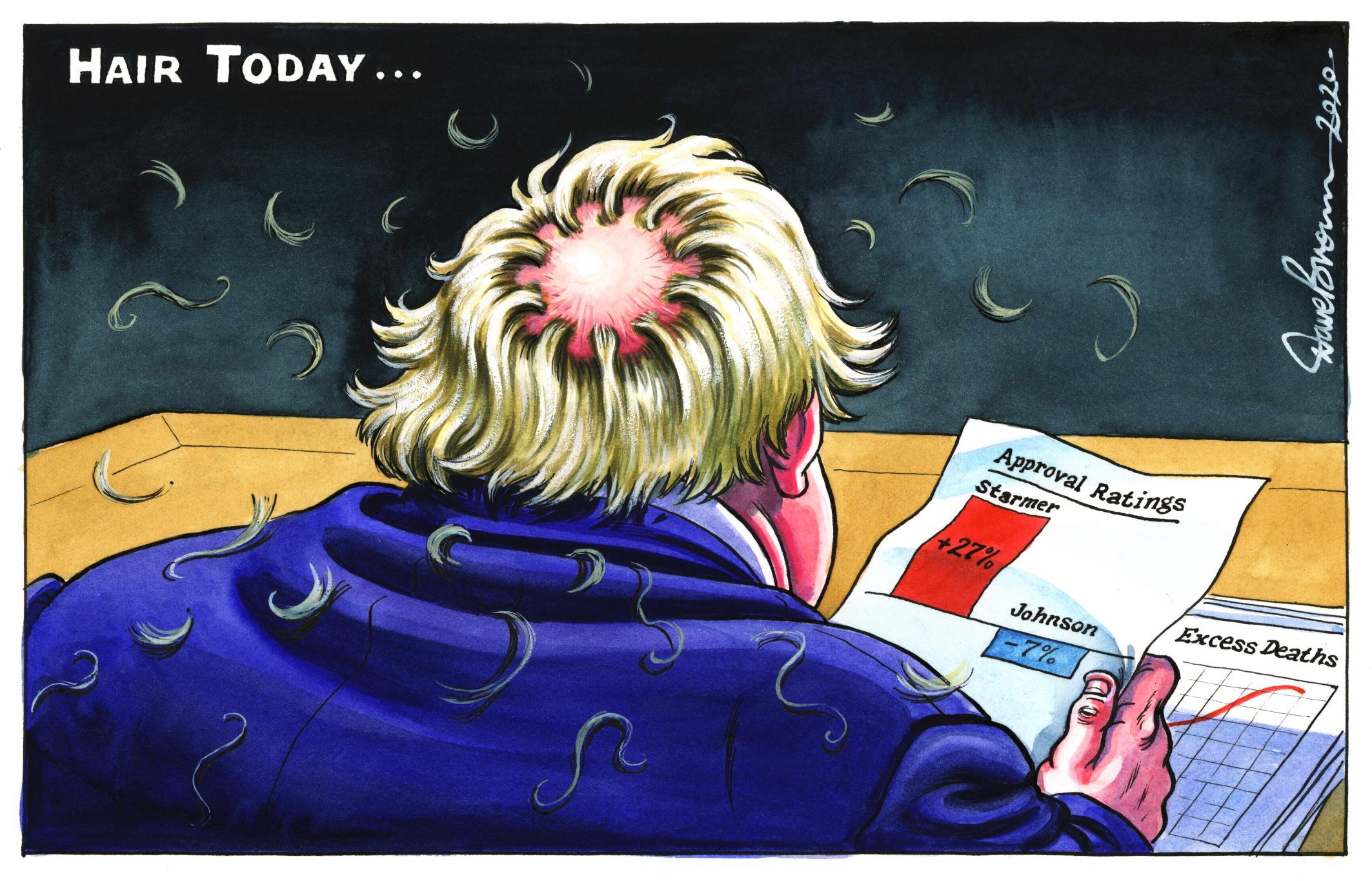For all its grievous failings, not least on coronavirus testing and tracking, the government cannot be entirely blamed for the shortcomings revealed in the first figures published on the new testing regime. Fully one third of people who tested positive for Covid-19 refused or otherwise failed to identify their contacts and help in telling them to self-isolate for 14 days.
One week into the new system, it is not known yet how many of the contacts that have been identified will in reality stay at home in full lockdown for the required time. Given shortcomings in childcare and sick pay, many will feel that they have no alternative but to carry on travelling to work, perhaps on public transport. The system, then, is rather leaky and suggests a much lower level of public support and compliance than prevailed in the initial weeks of lockdown.
The health and social care secretary, Matt Hancock, is making ever more desperate appeals to “civic duty”. That seems to be against the national mood. Part of this must be a long-term trend towards mistrust in data security held by large organisations; part of it will also be down to a general impression that lockdown is being generally abandoned (in England) with tacit political approval; and a portion of those ignoring the requests of tracing workers will be following the unfortunate example of Dominic Cummings, the prime minister’s chief adviser, whose cavalier attitude to the rules is well documented. Ever more intricate rules, such as on “bubbles”, are also harder to understand and follow.
The point is that the weaker the test and trace system, and the less the public cooperate with it, the riskier the exit from lockdown becomes. Ministers and scientific advisers alike have stressed time and again that further relaxations, such as opening pubs and stadia, say, crucially depends on a rapid and effective testing and tracing regime. As Boris Johnson puts it, the “whack-a-mole” approach to local outbreaks only works if the moles identify themselves and other moles, so to speak. As things stand, the improved response rates from the testing labs and tracers are compromised by too many abstentions.
Yet for a much more ambitious release from lockdown, the testing regime needs a working app – and this is woefully late. Only then can strangers who have been in contact with an infected person be found and advised. Many countries have encountered difficulties with the software, so Britain is hardly alone in this. The problem is that Britain is almost alone internationally in having such a high level of mortality and still-elevated rates for the R number and levels of infection. These may be lower than they were and the lockdown may have saved the NHS from being overwhelmed; but this remains, as one official said, “a very dangerous moment”.
There is also lobbying to reduce the two-metre social distancing rule to one metre. It is true that the economy would greatly benefit from that move; it is in line with WHO guidance, and many other countries have a smaller “exclusion zone” around their citizens. Yet those countries also have much lower levels of infection, and are at less risk of a massive second wave. For all the talk about lessons learnt, we know now that Britain went into lockdown too late, and the exponential power of the new coronavirus was underestimated.
That lesson seems to be neglected in the moves towards relaxation from lockdown, exacerbated by disturbing evidence that the public is wearying of the restrictions and the shortcomings in the test and track system.
Lives would be lost and it would be unforgivable if, having imposed lockdown too late, the government was to lift it too early.

Join our commenting forum
Join thought-provoking conversations, follow other Independent readers and see their replies
Comments